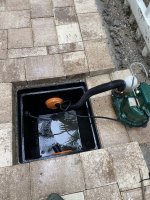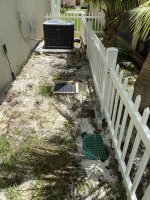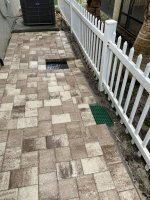Dan Cohen
New Member
We recently discovered leaks into our finished basement. Not gushing water, but enough seeping in to cause mildew smell, mold on the back of drywall and rot some stud wall sill plates.
At first we thought it was a leaky foundation, so we demolished interior walls and excavated an 18" wide trench on the outside. We saw the primary issue was our next door neighbor’s yard, where he had soil and big bamboo plants against and above our foundation and against exposed wood (this is an old house). Holes from roots and rot allowed water in. These plants and soil have been removed. To keep the lower soil grade against our foundation, we’ll maintain that trench between and build retaining wall on the other side of the trench to hold up the neighbor’s higher grade.
We got a professional opinion that there is no water entering through the foundation or floor, so, theoretically, problem solved. The question is - how we backfill the trench to encourage proper ongoing drainage? French drain, soil, gravel, rock, something else?
Attached are some pictures showing the situation. The plastic shown in the later two pictures is temporary covering for the exposed foundation, which is shown in the first picture.
Some contractors insist we need a $20K-$30K french drain system. Others say we can just waterproof the exterior foundation wall since we have access, then backfill the trench (both much less expensive).
It doesn’t rain a lot here, except during winter, when every few years we get rain heavy enough cause sewer backups. In our case, water runs downhill alongside/parallel to our foundation, not towards. Roof gutter downspouts overhead are connected to city drain pipes. Soil is pretty packed with a lot of clay, but it does drain.
My thought is backfill that trench with the drainage gravel they use over French drain, and keep soil off of it. My concern with that is that water spilling down the hill and over retaining walls could overwhelm the trench, which would drain more quickly than the soil.
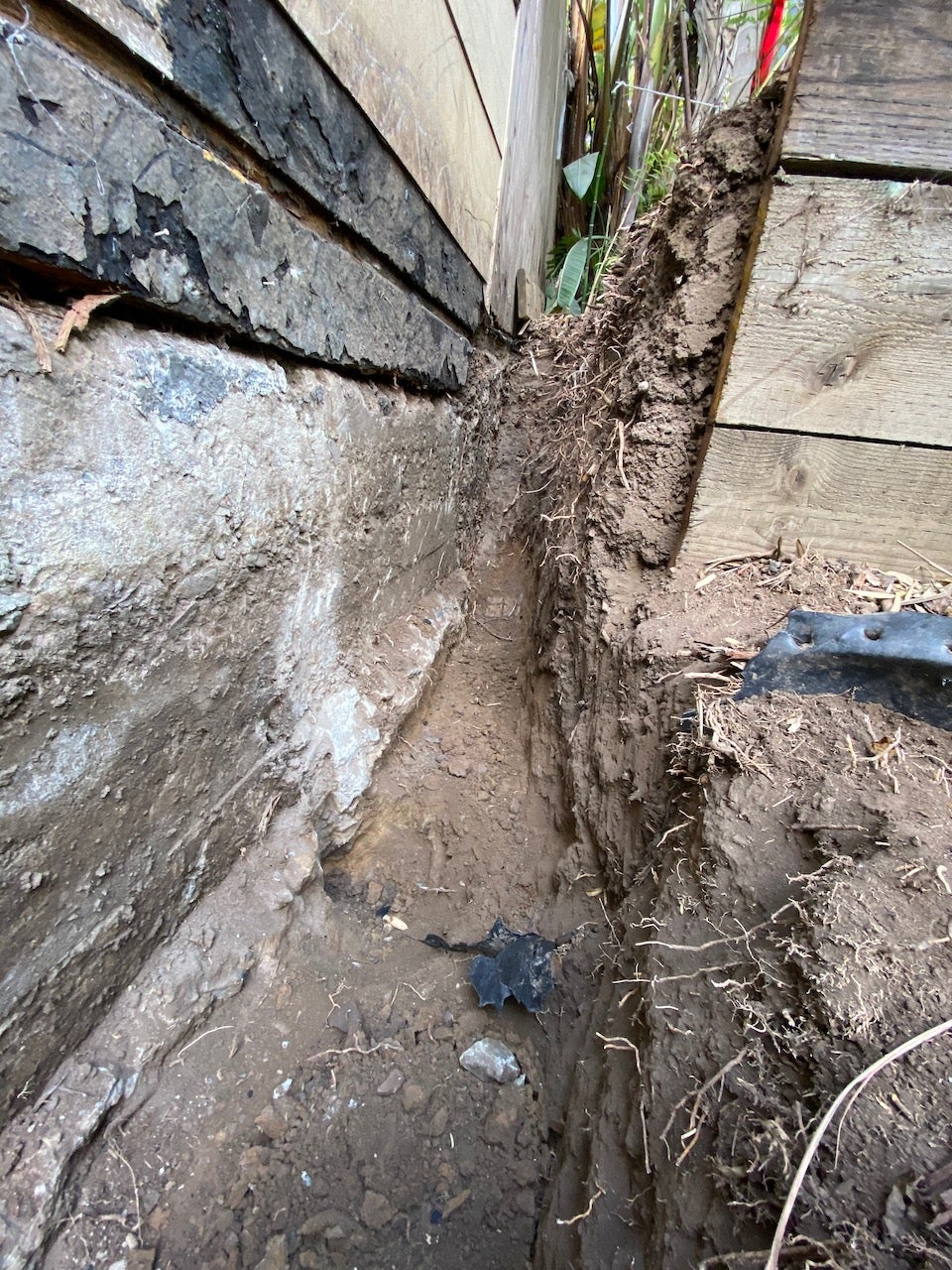
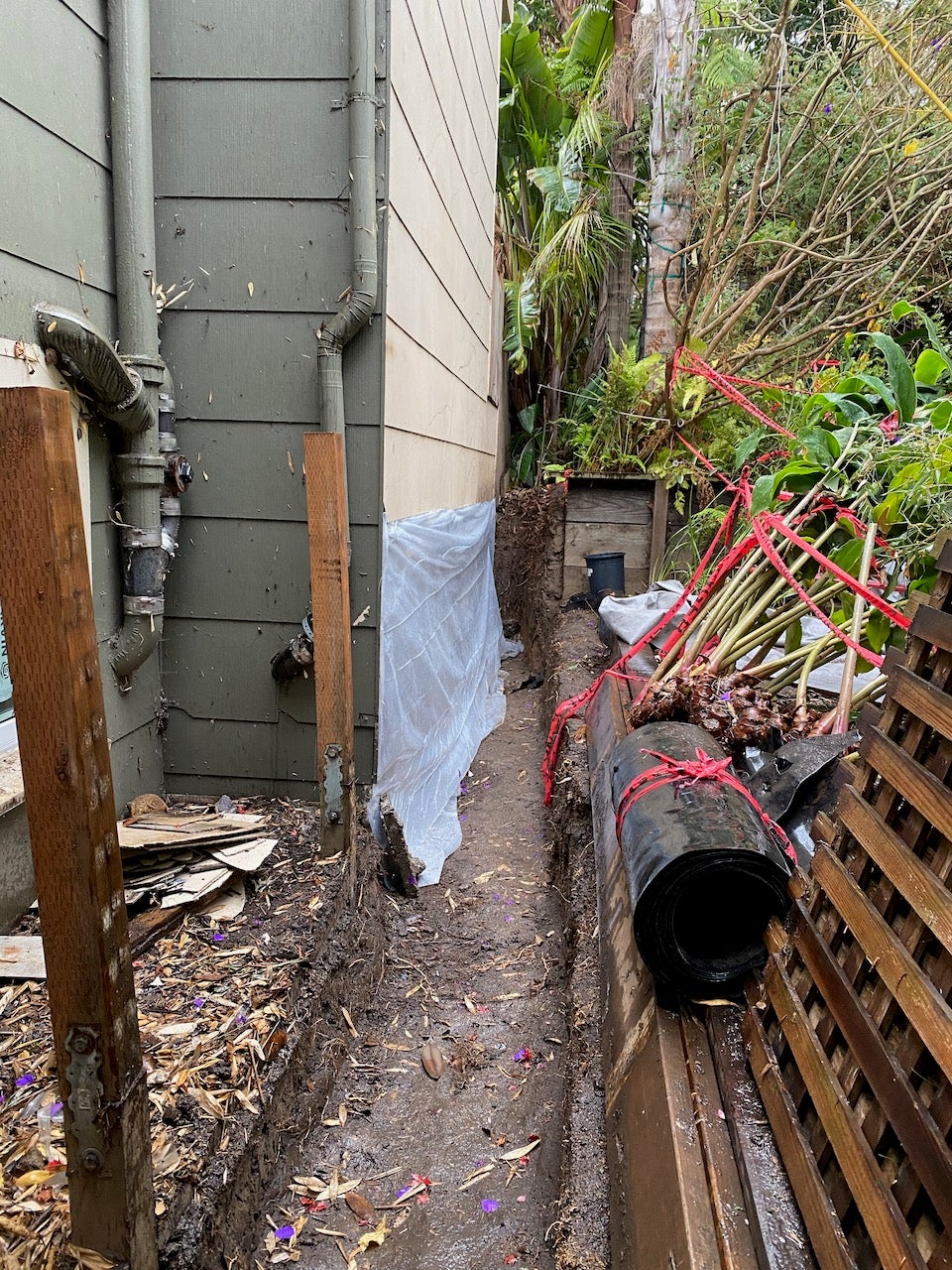

At first we thought it was a leaky foundation, so we demolished interior walls and excavated an 18" wide trench on the outside. We saw the primary issue was our next door neighbor’s yard, where he had soil and big bamboo plants against and above our foundation and against exposed wood (this is an old house). Holes from roots and rot allowed water in. These plants and soil have been removed. To keep the lower soil grade against our foundation, we’ll maintain that trench between and build retaining wall on the other side of the trench to hold up the neighbor’s higher grade.
We got a professional opinion that there is no water entering through the foundation or floor, so, theoretically, problem solved. The question is - how we backfill the trench to encourage proper ongoing drainage? French drain, soil, gravel, rock, something else?
Attached are some pictures showing the situation. The plastic shown in the later two pictures is temporary covering for the exposed foundation, which is shown in the first picture.
Some contractors insist we need a $20K-$30K french drain system. Others say we can just waterproof the exterior foundation wall since we have access, then backfill the trench (both much less expensive).
It doesn’t rain a lot here, except during winter, when every few years we get rain heavy enough cause sewer backups. In our case, water runs downhill alongside/parallel to our foundation, not towards. Roof gutter downspouts overhead are connected to city drain pipes. Soil is pretty packed with a lot of clay, but it does drain.
My thought is backfill that trench with the drainage gravel they use over French drain, and keep soil off of it. My concern with that is that water spilling down the hill and over retaining walls could overwhelm the trench, which would drain more quickly than the soil.

